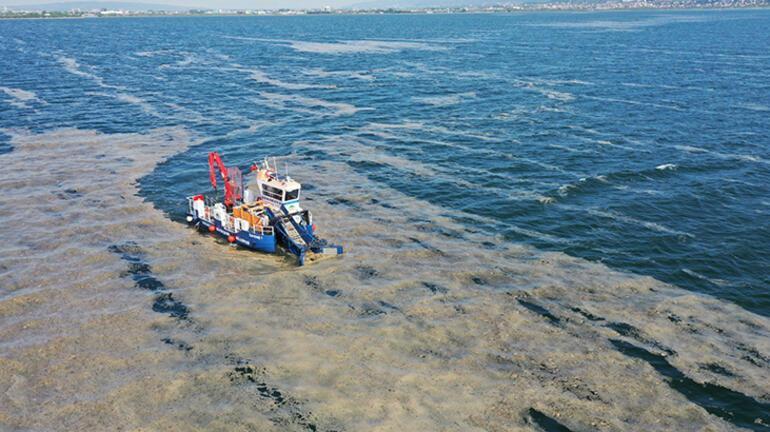
The massive marine mucilage bloom that has been killing the undersea life of the Maramara Sea might also bring the end of the Black Sea, an expert warned while briefing the Turkish Parliament Global Climate Change Research Commission on June 3.
“The Black Sea is the world’s largest oxygen-free water body. If the Marmara Sea dies, then the Black Sea dies with it,” Gülşah Deniz Atalar, a board member of the Climate Change Policy and Research Association, told commission members.
Mucilage is a viscous, gluey substance that develops on the surface of the water due to the excessive proliferation of microscopic plants called phytoplankton. It is caused by the accumulation of nitrogen, phosphorus and carbon in industrial and agricultural wastewater.
Talking about the Danube River in her briefing, Atalar said: “The river carries all of the pollution of the western Balkan countries to the Black Sea.”
Highlighting the importance of the Marmara Sea for the Black Sea, she said, “The Marmara Sea feeds and gives oxygen to the Black Sea by the undercurrent. But due to the mucilage, the Marmara Sea cannot do this.”
The Black Sea is home to 60 percent of the Turkish fishing industry.
Turkey’s environment minister said on June 3 that they were preparing a comprehensive action plan for the protection of the Marmara Sea.
“We are currently working on measures to be taken both in the short and the long term regarding the mucilage occurring in Marmara,” Murat Kurum told reporters in the Central Anatolian province of Konya.
He said scientists, nongovernmental organizations (NGOs), the Environment Ministry and the Marmara Municipalities Union were all working together to solve the sea snot problem.
“We are preparing an emergency action plan. Of course, when you look at this point, the reason for mucilage seems to be the increase in seawater temperature, the pollution in the sea and the decrease in the water level with the effects of climate change and the decrease in water mobility,” Kurum added.
He stressed that they would also take steps to increase the number, quantity and quality of wastewater treatment plants in the region.
“This is an important issue that concerns our environment, our seas and our coasts, and we are trying to carry out this process as part of an urgent action plan,” he noted.
The causes of the pollution and the uncontrolled production of sea snot in the Marmara Sea are being investigated by scientists in a research ship by the Middle East Technical University (ODTÜ).
The Bilim-2 (Science-2) vessel collects data from 100 stations, including the Istanbul and Çanakkale straits, in the Marmara Sea as part of the “Marmara Sea Integrated Modeling System (MARMOD) Project,” which has been conducted since 2017 by the environment ministry.
Samples are analyzed in the laboratory of the Bilim-2 ship.
Marine Sciences Institute Director Barış Salihoğlu told the state-run Anadolu Agency that ODTÜ recently focused on the Marmara because scientists observed an ongoing decrease in oxygen level in the sea.
Upon the occurrence of recently aggravated mucilage production in the Marmara Sea, Salihoğlu said that climate change and overfishing were among the factors that triggered the problem.
“It is necessary to study the Marmara Sea with all its parameters. Otherwise, you will not be able to analyze problems such as mucilage correctly,” he said.
Noting that the research is mainly focused on current factors such as the decline of oxygen and salt that affect sea snot production in the Marmara Sea, Salihoğlu said it would take at least six to seven years to see an improvement if precautions were taken as soon as possible.
“A very quick recovery is not easy, it takes time and patience,” he said.
He also said that it was hard to tell the amount of pollution in the Marmara at the moment, adding, “There is mucilage in the entire water column.”
“There are serious signals about the health of the ecosystem. It will not immediately improve after the measures are taken, but we think that we can solve it in the long term with determined steps,” he said.